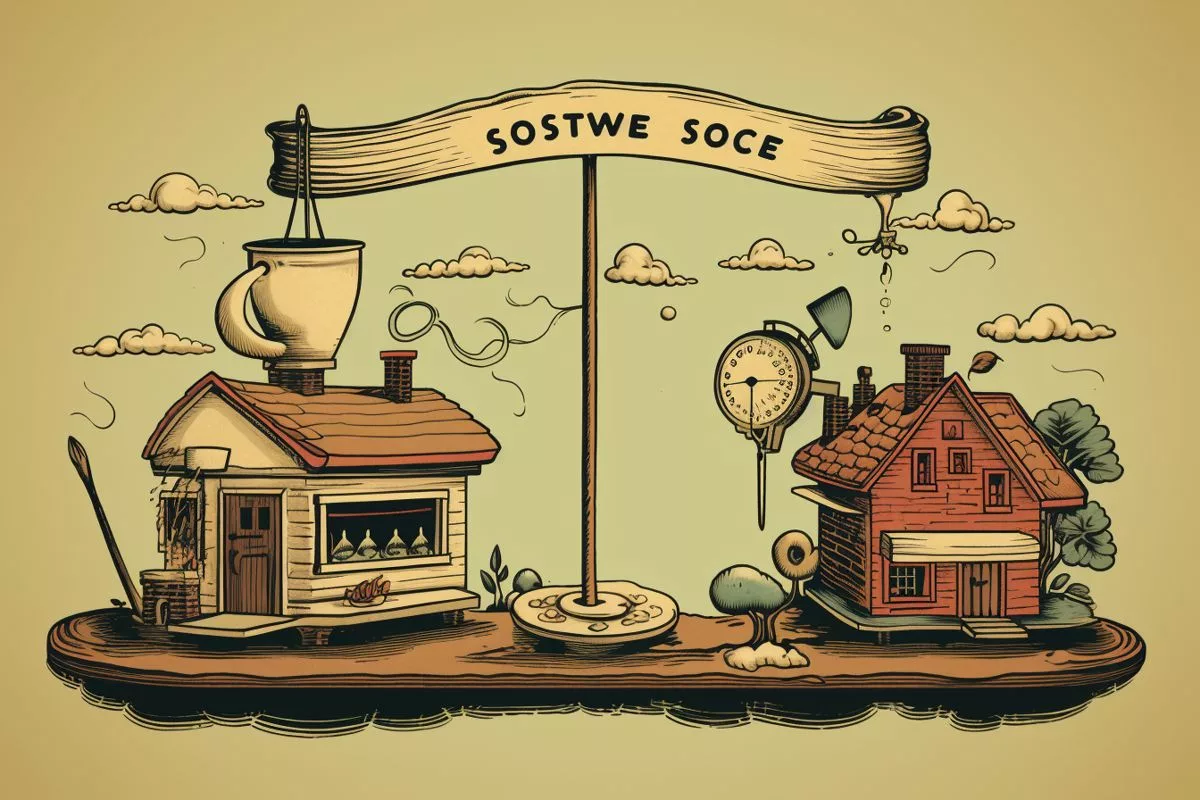Western Cape leaders are calling for the MTBPS2023 to prioritize service delivery in critical sectors like education and healthcare, and to focus on economic growth driven by the private sector instead of poorly managed State-owned Enterprises. They express concern about potential funding cuts through the Provincial Equitable Share and urge the national government to assume the costs of the public-sector wage increase. The leaders’ expectations for the budget adjustments offer valuable insight into the potential impacts on the Western Cape and the entire nation’s economic and social landscape.
What are the expectations of Western Cape leaders for MTBPS2023?
Western Cape Premier Alan Winde and Provincial Minister of Finance and Economic Opportunities Mireille Wenger expect the MTBPS2023 to prioritize service delivery in critical sectors such as education, healthcare, and support for vulnerable populations. They also emphasize the importance of the private sector in promoting economic growth and job creation rather than allocating additional funds to poorly managed State-owned Enterprises (SOEs). They express apprehension about potential reductions in provincial funding through the Provincial Equitable Share and call for a budget that concentrates on the people’s needs.
As Finance Minister Enoch Godongwana prepares to deliver the Medium-Term Budget Policy Statement (MTBPS), Western Cape Premier Alan Winde and Provincial Minister of Finance and Economic Opportunities Mireille Wenger have outlined their expectations for the upcoming fiscal amendments.
Premier Winde emphasizes the significance of the national government’s decisions in setting the stage for the primary budget in March next year. He appeals to Minister Godongwana not to allocate additional funds to poorly managed State-owned Enterprises (SOEs) and, instead, to concentrate on the requirements of South African citizens.
Minister Wenger shares this viewpoint, advocating for a revised budget that emphasizes service delivery in critical sectors such as education, healthcare, and support for vulnerable populations. She acknowledges the challenging balancing act that Minister Godongwana must undertake but highlights the importance of preserving essential services.
The Role of Private Sector and Concerns Over Provincial Funding Cuts
Wenger also cautions against supporting failing SOEs at the expense of the provinces’ capacity to fulfill their constitutional responsibilities. She emphasizes the importance of the private sector in promoting economic growth and job creation and advises against borrowing additional funds to support struggling SOEs. In Wenger’s opinion, every available Rand should be used for the benefit of the South African people, starting with addressing the issues created by failing SOEs in crucial sectors like logistics and electricity supply.
Premier Winde and Minister Wenger express apprehension about potential reductions in provincial funding through the Provincial Equitable Share, which could be used to accommodate the public-sector wage increase. They contend that the national government, which negotiated and approved the agreement, should assume the costs of this decision. Any funding cuts to the Western Cape would jeopardize their ability to provide high-quality frontline services, and they are willing to use all necessary means to prevent such decreases.
The main focus of the Western Cape leaders’ expectations for the MTBPS2023 is on prioritizing service delivery and fostering economic growth driven by the private sector. They acknowledge the delicate balance that Minister Godongwana must strike, but they encourage him to concentrate on the people’s needs rather than maintaining failing SOEs. The forthcoming budget adjustments will significantly influence South Africa’s financial trajectory, and the insights of Premier Winde and Minister Wenger offer a valuable perspective on the potential effects these decisions may have on the provinces and their residents.
MTBPS2023’s Impact on South Africa’s Economic and Social Landscape
As the MTBPS2023 unfolds, various stakeholders and citizens will be closely observing the national government’s strategy for addressing South Africa’s pressing challenges. Minister Godongwana’s approach to managing these complex issues will undoubtedly shape the country’s economic and social landscape in the coming years, with consequences not only for the Western Cape but also for the entire nation.
The expectations laid out by Premier Winde and Minister Wenger provide insight into the priorities and concerns of provincial leaders as they deal with the repercussions of national financial decisions. The upcoming MTBPS2023 will be a critical juncture in determining the direction of South Africa’s fiscal policy and its effect on the provinces and their residents. In the meantime, the call for a budget that prioritizes service delivery and economic growth by the Western Cape leaders presents a persuasive vision for the path ahead.
1. What is MTBPS2023?
MTBPS2023 stands for Medium-Term Budget Policy Statement 2023. It is a statement that outlines the government’s spending priorities over the next three years and is presented annually by the Minister of Finance.
2. What are the expectations of Western Cape leaders for MTBPS2023?
Western Cape Premier Alan Winde and Provincial Minister of Finance and Economic Opportunities Mireille Wenger expect the MTBPS2023 to prioritize service delivery in critical sectors such as education, healthcare, and support for vulnerable populations. They also emphasize the importance of the private sector in promoting economic growth and job creation rather than allocating additional funds to poorly managed State-owned Enterprises (SOEs). They express apprehension about potential reductions in provincial funding through the Provincial Equitable Share and call for a budget that concentrates on the people’s needs.
3. Why do Western Cape leaders want to prioritize service delivery and economic growth in MTBPS2023?
Western Cape leaders believe that prioritizing service delivery and economic growth will lead to a better quality of life for their residents. They also believe that focusing on these areas will help to address the many challenges facing South Africa, such as poverty, unemployment, and inequality.
4. What is the Provincial Equitable Share?
The Provincial Equitable Share is a grant given to provinces in South Africa by the national government to help them provide basic services such as education, healthcare, housing, and sanitation to their residents.
5. Why are Western Cape leaders concerned about potential funding cuts through the Provincial Equitable Share?
Western Cape leaders are concerned that potential funding cuts through the Provincial Equitable Share could result in a reduction in the quality of essential services provided to their residents. They believe that any funding cuts would jeopardize their ability to provide high-quality frontline services and put the wellbeing of their residents at risk.
6. What is the role of the private sector in promoting economic growth?
Western Cape leaders believe that the private sector plays a vital role in promoting economic growth and job creation. They argue that a focus on the private sector can help to create new businesses, attract foreign investment, and boost economic activity.
7. Why are Western Cape leaders against allocating additional funds to poorly managed SOEs?
Western Cape leaders believe that allocating additional funds to poorly managed SOEs is not an effective use of public funds. They argue that SOEs have a history of mismanagement and corruption, and that throwing more money at them is unlikely to lead to improved performance.
8. What are the potential impacts of MTBPS2023 on South Africa’s economic and social landscape?
The MTBPS2023 will have significant impacts on South Africa’s economic and social landscape. The decisions made in the budget will shape the country’s fiscal policy for the next three years and will have consequences for the provinces and their residents. The Western Cape leaders’ expectations for the budget adjustments offer valuable insight into the potential impacts on the Western Cape and the entire nation’s economic and social landscape.








